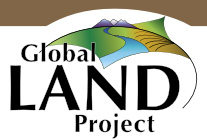Achieving sustainability depends not only on bold new science, but also on research that can bring drastic changes in human attitudes, intentions and -- most importantly – behaviors. The CHANS-Net Network harnesses the best minds from across disciplines that will create a revolution in sustainability Here Jianguo "Jack" Liu, principal investigator
News
-
Call for papers for special issue on telecoupling / metacoupling
Published on December 10, 2025
Special issue in the International journal Geography and Sustainability calls for papers on telecoupling/metacoupling. -
Welcome to Join Telecoupling and Metacoupling Programs at IALE-NA
Published on November 18, 2024
Two organized telecoupling/metacoupling programs will be hold at the 2025 IALE-NA annual meeting. -
Call for Papers for the I-GUIDE 2024 Forum
Published on June 11, 2024
The I-GUIDE 2024 Forum, Convergence Science and Geospatial AI for Environmental Sustainability, is coming up October 14-16 in Jackson, Wyoming, USA.I-GUIDE invites researchers, AI and data scientists, and cyberinfrastructure experts to share their wo... -
I-GUIDE Forum 2024: Convergence Science and Geospatial AI for Environmental Sustainability
Published on May 6, 2024
Save the date for the I-GUIDE Forum 2024: Convergence Science and Geospatial AI for Environmental Sustainability! Join us in Jackson, WY from October 14-16 for groundbreaking discussions and insights into harnessing technology for a sustainable... -
Call for papers from Global Sustainability - Cambridge University Press
Published on May 6, 2024
A special issue of Global Sustainability - Cambridge University Press, calls for papers to the theme of “Geography, Telecoupling, and Sustainability". -
Workshop on Metacoupling
Published on May 6, 2024
A workshop on metacoupling was held in Oklahoma City, Oklahoma, on April 3, 2024.Metacoupling: A New Interdisciplinary Frontier for Global Sustainability
Search Chans-Net
In The Media
-
New York Times: Of Fish, Monsoons and the Future - A Push to Save Cambodia’s Tonle Sap Lake
Published on June 1, 2014 by New York Times: Of Fish, Monsoons and the Future - A Push to Save Cambodia’s Tonle Sap Lake
-
Twitter Snapshot - A day of telecoupling tweets - 12/19/13
Published on December 20, 2013 by Twitter Snapshot
-
NSF - Telecoupling science shows China's forest...
Published on December 20, 2013 by NSF
-
Voice of America - Seabird Bones Reveal Changes in Open-Ocean Food Chain
Published on May 1, 2013 by Voice of America - Seabird Bones Reveal Changes in Open-Ocean Food Chain
-
French Tribune - Human Influence Changes Open-Ocean Food Chain: Seabird Bones Study
Published on May 1, 2013 by French Tribune - Human Influence Changes Open-Ocean Food Chain: Seabird Bones Study
-
LiveScience - Bird Bones Reveal Human Effects on Ocean Food Chain
Published on May 1, 2013 by LiveScience - Bird Bones Reveal Human Effects on Ocean Food Chain
Sponsors
 |
NSF is the only federal agency whose mission includes support for all fields of fundamental science and engineering, except for medical sciences. We are tasked with keeping the United States at the leading edge of discovery in areas from astronomy to geology to zoology. So, in addition to funding research in the traditional academic areas, the agency also supports "high-risk, high pay-off" ideas, novel collaborations and numerous projects that may seem like science fiction today, but which the public will take for granted tomorrow |
| Center for Systems Integration and Sustainability, Michigan State University - A center of excellence that integrates ecology with socioeconomics, demography, and other disciplines for ecological sustainability from local, national, to global scales. | |
 |
Global Land Project - A joint research project for land systems in the International Geosphere-Biosphere Programme and the International Human Dimensions Programme. |
About CHANS-Net
Coupled human and natural systems (CHANS) are integrated systems in which humans and natural components interact. CHANS research has recently emerged as an exciting and integrative field of cross-disciplinary scientific inquiry, with research projects covering a variety of coupled systems in locations spanning the globe. Although individual projects have generated many important insights, it is essential to systematically transform the field to be more than the sum of its parts and provide broader insights of greater scientific and societal significance than those resulting from individual projects alone. The goal of CHANS-Net is to foster this transformation by facilitating communication and collaboration among members of the CHANS research community.









 Print
Print Email
Email